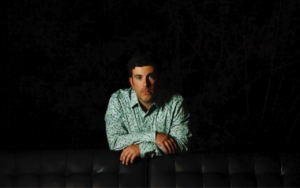
Your old music is always new to somebody!
I’ve probably written the above statement a dozen times on this blog. There are billions of people on the planet, and most of them have never heard your songs.
That can either be a big disappointment or a huge opportunity, depending on how you look at it.
Forget about NEW/NEXT and put your existing music catalog to work instead.
NEW/NEXT is my term for that frenetic mindset many musicians (and really anyone who’s trying to keep up online) can get trapped in where they’re obsessed with constant output. You worry that if you don’t have a steady stream of brilliant tweets and pics and songs and videos to share, you’ll be pushed aside, paved over, forgotten.
I’m guilty too. In fact, if someone is trying to make a dent on Spotify and attract the attention of its algorithm, I’d actually PREACH this to them: put out a new single every month!
But there’s a point at which that mindset can be counterproductive.
The value of a song doesn’t diminish with age.
Yesterday I was listening to the Creative Juice podcast, one of Indepreneur’s educational resources, and they were talking about this exact thing, and they articulated it in a really insightful way.
Basically, they pointed out how ridiculous the traditional music industry can be when it’s powered constantly by a NEW/NEXT mindset — and how counter-productive the music industry’s practices are when compared with those of most other industries.
I mean, Red Bull isn’t obsessed with putting out different drinks every month. Toilet paper companies aren’t obsessed with creating the next version of their toilet paper each quarter.
Those companies find a product that works, a product that solves some need or captures someone’s imagination. Then they deliver that (same) value to existing customers while demonstrating the power of their product to new customers. Once they have a proven thing, the rest is marketing.
Same goes for your music. If billions of people online haven’t heard your music, you don’t need to spend every ounce of energy being a “content creator” (oh, I hate that term). You can spend your time determining which of your existing songs or videos has the most immediate impact. Then it’s a matter of getting that “content” in front of new fans, as well as continuing to share it with existing fans in interesting ways.
And it doesn’t matter if the song was made last year, or ten years ago, or forty years ago. If it’s good music, if there’s a compelling context to the song, and if there’s a marketing hook (like an irresistible headline) that grabs people, then your music can find a loyal audience — no matter how old you, they, or the music is.
But your music has to find its audience, not the other way around.
That’s why it’s marketing.
So what are some ways to put your back catalog of music to work?
This is by no means an exhaustive list, nor am I going to get into strategy details here — but I hope some of these ideas give you a sense of the possibilities for your older songs.
- Write about it: How you wrote the song, why it’s important to you, how it might’ve touched a listener, some special moment in the recording process — then turn it into an email (maybe even part of a drip campaign), blog, or Facebook post.
- Target new audiences and pay to put an ad (with your track or video) in front of their faces.
- Make an event out of anniversaries: Do a celebration concert, a Live stream, a Twitter listening party, or something else to commemorate the 5th or 20th or 50th anniversary of putting out a particular song or album.
- Live stream short concerts from home where you play older stuff, and get your viewers to engage with that music on streaming services, or purchase CDs, or… whatever else you want them to do with your catalog.
- Run a contest or giveaway where the prize draws attention to your older music; maybe it’s a limited edition vinyl pressing of an out-of-print album, or you give away 25 signed copies of your second-to-last CD…
- Ask your fans to create playlists of what THEY think are your greatest hits, or the ideal set-list you could play if you only performed “the early stuff.”
- Explore “secondary” connections. It might not have been obvious to you when you first released the song, but perhaps there’s an undercurrent or subject matter in the lyrics that relates to some current event, some cause or struggle, the mission of some non-profit organization, etc. Maybe the first time around you pitched your song to music blogs. Well, ten years have passed, and maybe that album has really resonated with people in recovery, for instance. Reach out to the recovery community and give them the same music with a whole new context.
Okay, those are just a few ideas to show how your older music still has legs. Get those songs walking!
